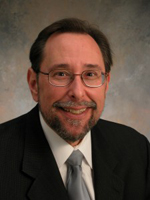 |
| ASCO Chief Medical Officer Richard Schilsky--Courtesy of Reagan-Udall Foundation |
Public debate over high drug prices is one thing. The sound and fury may never translate into actual change. But pushback from doctors is something else altogether. And when those doctors happen to be in charge at the American Society of Clinical Oncology, drugmakers might want to start worrying.
ASCO has launched an effort to rate cancer drugs not only on their benefits and side effects, but prices as well. As Chief Medical Officer Richard Schilsky told BioCentury, the powerful professional society decided to grade treatments because prices are disconnected from the actual therapeutic value of products.
The price of cancer drugs is becoming unsustainable, Schilsky explained on BioCentury's TV program BioCentury This Week. In many cases, their benefits don't match up to their costs. ASCO would like oncologists to consult its scorecard and decide on treatments accordingly.
ASCO's effort comes as tension over drug prices--cancer meds included--has ratcheted up. The current fight about hepatitis C treatment pricing may be the loudest at the moment. But as one pricey cancer drug after another has hit the market, cost gatekeepers outside the U.S. and private payers here have protested. U.K. cost-effectiveness watchdogs routinely exclude expensive cancer drugs from the National Health Service formulary, changing its mind only after a drugmaker offers some sort of price break.
But doctors didn't join the pushback, at least not publicly, until Sanofi's ($SNY) colon cancer drug Zaltrap launched in the U.S. Some high-profile physicians at Memorial Sloan-Kettering Cancer Center refused to use Zaltrap, saying that it was no better than less expensive, older drugs. They announced their decision in a New York Times op-ed piece. And they since have said they may do the same with other cancer drugs.
Sanofi later offered rebates to reduce the cost of the drug by half. But sales have dragged, and overseas, agencies such as the U.K.'s National Institute for Health and Care Excellence have rejected it, even at a discount.
Now, ASCO proposes to offer similarly cold-eyed advice on a raft of cancer treatments. Drugs that offer borderline benefits to patients, but sell at a premium, would find themselves without ASCO backing. How quickly or completely that might depress sales remains to be seen. But a thumbs-down from the group would obviously present a new obstacle for sales reps to overcome.
With payers up in arms and doctors increasingly skeptical, drugmakers could find themselves with dwindling pricing power in the U.S., their biggest market. Not to mention the market pharma companies count on to make up for pricing pressures elsewhere.
- read the BioCentury piece (sub. req.)
Special Report: The 10 best-selling drugs of 2013